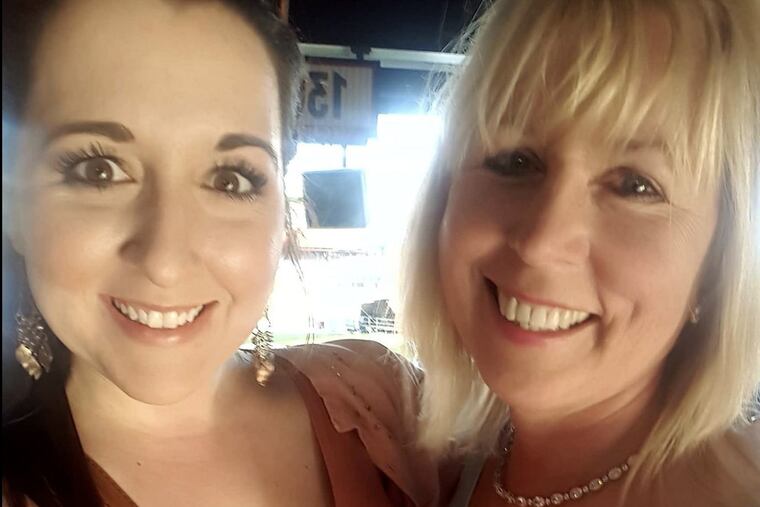The holidays can be a challenging time for a ‘non-grandparent’ in a grandparenting world | Opinion
People who deeply desire to be grandparents and don’t reach this milestone often carry grief and sorrow they don’t share with others. If you are a non-grandparent, please know that you are not alone.

People who deeply desire to be grandparents and don’t reach this life milestone often carry grief and sorrow they don’t share with others. As I discovered when I became one of these people, there is no word to describe us. So, I coined the term “non-grandparent.”
In 2014, I was elated when I learned my daughter and son-in-law were pregnant after infertility treatments. When they experienced a loss in the 11th week of the pregnancy, their dreams were shattered. I too experienced profound sorrow. However, I kept my feelings to myself so I could support them. Over time, keeping silent about my feelings started to take a toll. I thought I was going to be part of “the grandparents club.” Instead, I was taken down a grief path I was unprepared for.
I kept silent about my sorrow for a long while. I primarily did this to protect my daughter and son-in-law’s feelings. I also was silent about my feelings because I knew that others close to me were also going through tough times. After I discovered strategies that helped me speak up about my sorrow, I found that those who know and love me recognized that my feelings were no less important than theirs. They truly wanted to support me along my non-grandparent journey.
I was a non-grandparent for four years. There were times when I thought I would never be a grandparent. I had to learn to engage in activities of self-fulfillment to keep my psychological health strong. Our family was blessed in summer 2018 when our daughter and son-in-law adopted their daughter. My life is now filled with the joy I anticipated in 2014. However, my memories of my years living as a non-grandparent remain.
I believe that there are many, many non-grandparents among us and that there are several reasons why someone is a non-grandparent.
Someone can be a non-grandparent for childbearing reasons such as infertility, pregnancy loss, and stillbirth. Non-childbearing reasons, such as when an adult child chooses to remain childless, is postponing childbearing indefinitely to pursue educational or career pursuits or has not been in a long-term relationship contributes to the number of non-grandparents. Adults whose only child dies prior to having children experience a double tragedy due to the loss of any future grandchildren. Someone who never had children, for whatever reason, may also experience grief and sorrow as their friends and family with children are now becoming grandparents. And even a grandparent can experience the grief and sorrow of a non-grandparent when their only grandchild dies or when estrangement occurs in families and ties to grandchildren are strained or severed entirely.
Statistics illustrate how common fertility issues are. In 2019, the U.S. Centers for Disease Control and Prevention (CDC) reported about 7% of married women of childbearing age are unable to get pregnant after one year of trying; 12% of all women aged 15 to 44 have difficulty getting pregnant or carrying a pregnancy to term; approximately 9% of men aged 15 through 44 faced infertility or nonsurgical sterility. An additional 20,000 stillbirths occur annually, and an estimated 10% to 20% of pregnancies end in miscarriage.
Family estrangement is another factor. Some grandparents I know have told me on several occasions about their sadness and frustration concerning the fact that they cannot see the children they so want to connect with. Cornell University researcher Karl Pillemer recently conducted the first large-scale national survey about family estrangement, finding more than a quarter of the adults in his sample reported being estranged from family members; 10% were estranged from a parent or child.
If you are a non-grandparent, please know that you are not alone. Your grief and sorrow are real and justified, and you can learn to speak of them and to care for yourself in a grandparenting world. Communicating your sorrow to family, friends, neighbors and coworkers is the first step toward healing.
Holidays can be very hard for non-grandparents due to the associated family festivities. Even during the pandemic, families are gathering, and social media will contain pictures and stories of grandparents and their grandchildren. Telling a non-grandparent that you are there when they want to talk about their feelings is a good starting point. In normal circumstances, so is a big hug. But even a virtual hug speaks volumes.
Mary Ellen T. Miller is the director of the Lehigh Valley Affiliate of the Bridging the Gaps Community Health Internship and is nationally board certified in Advanced Public Health Nursing. Contact her at nursemaryellen1977@gmail.com.